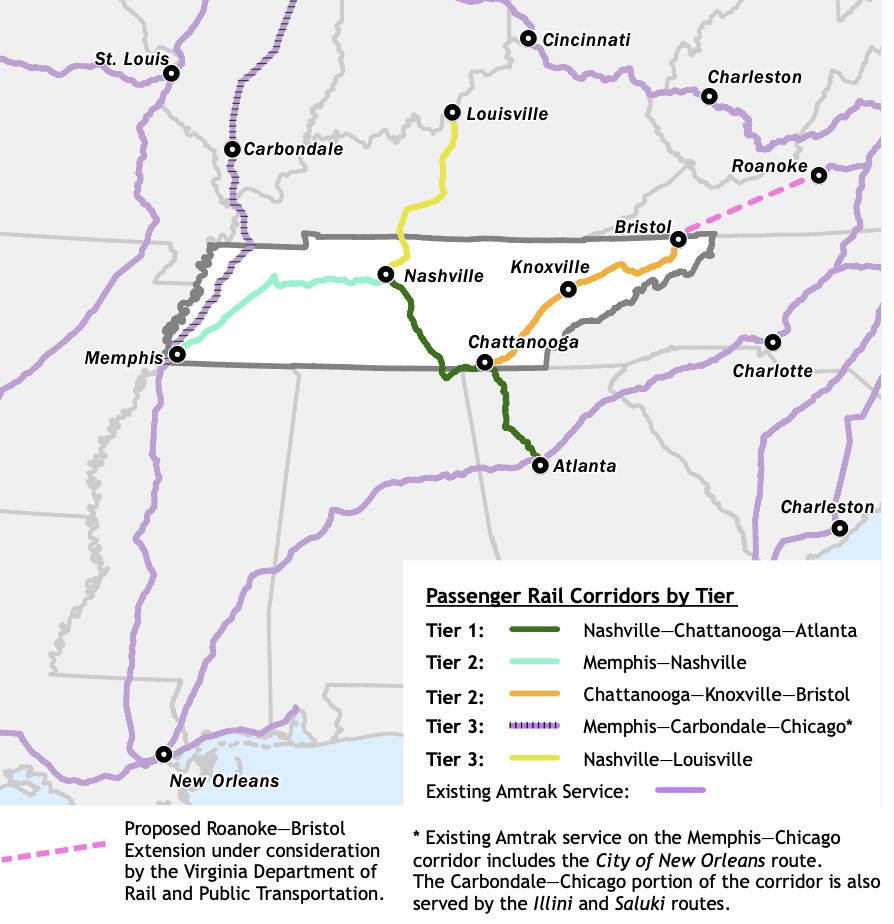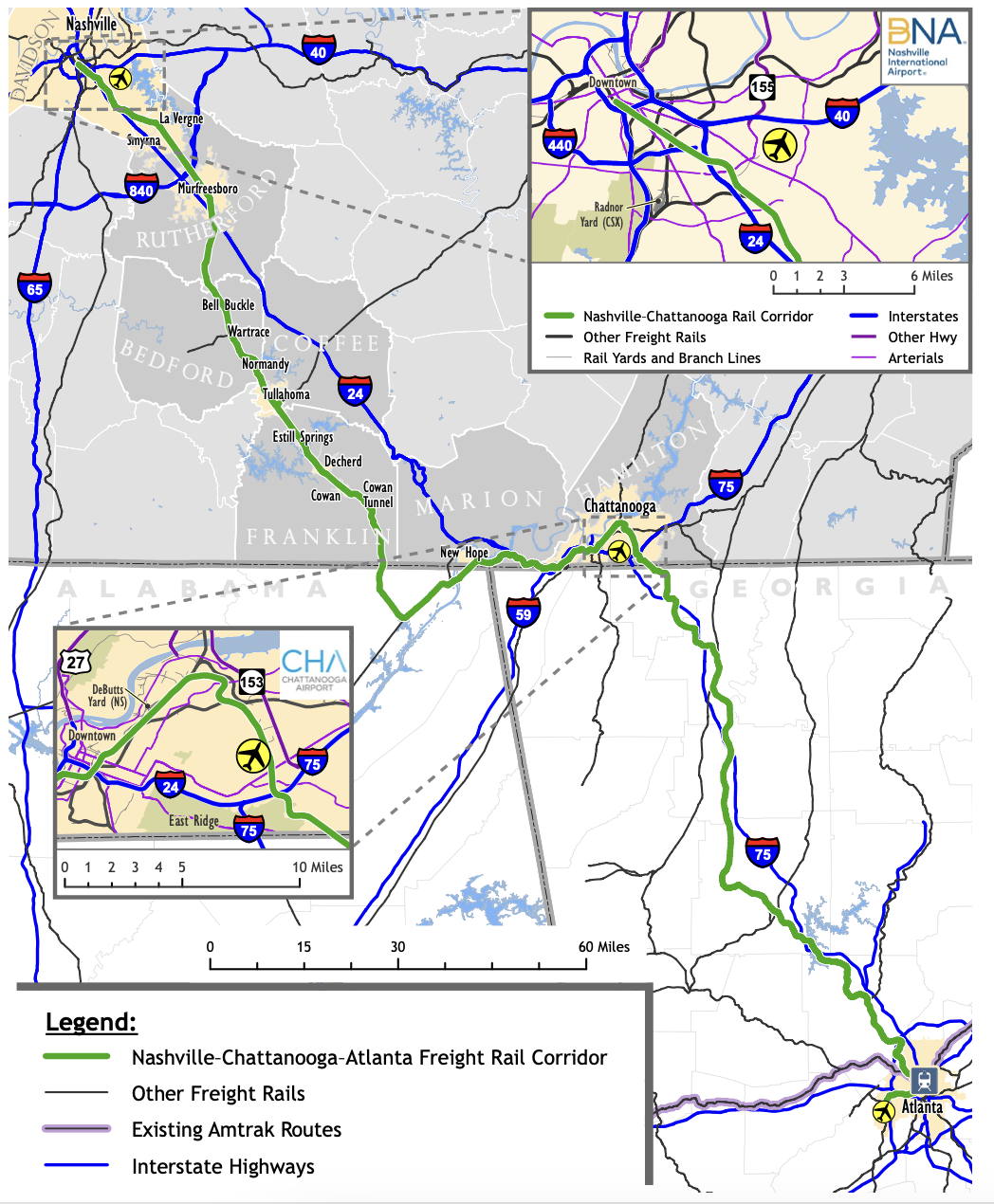A state panel has recommended building a rail service to connect Tennessee’s major cities, and say a line from Nashville to Chattanooga to Atlanta should be first.
Details of the service and how the state might construct it are outlined in a new report issued by the Tennessee Advisory Council on Intergovernmental Relations (TACIR), a state group that examines complex policy questions and how government bodies work together. The Tennessee General Assembly asked the group to study the feasibility of an inter-city rail service last year.
The 139-page report says rail service across the state could “help increase connectivity and facilitate tourism and other economic development initiatives in Tennessee.” TACIR said that state officials should submit their findings to the Federal Railroad Administration (FRA).

The agency is already reviewing applications for rail lines submitted by the cities of Memphis, Nashville, Chattanooga, and Atlanta. TACIR recommended that the Tennessee Department of Transportation (TDOT) submit its report to support the application.
Tennessee Democrats urged Governor Bill Lee to do so quickly, saying “passenger rail has tremendous potential to improve mobility and grow the state’s economy,” and that federal funds for rail planning are available through the Bipartisan Infrastructure Plan.
“This informative report confirms what we rail advocates have been saying for years,” House Democratic Caucus Chair Rep. John Ray Clemmons (D-Nashville) said in a statement. “Toll lanes and wider roadways are not feasible stand-alone solutions to our transportation woes.
”We have a tremendous opportunity here to improve Tennesseans’ quality of life by connecting our cities, growing local economies and easing traffic congestion along some of our busiest corridors.
“The bottom line is that Amtrak wants to be here, and the federal government has the funds to help us. It is time for the Lee administration to stop making excuses and say ‘yes’ to passenger rail in Tennessee.”

TACIR said the top priority for rail service in Tennessee should be a line that connects Nashville and Atlanta through Chattanooga. The Southeast Corridor Commission estimated that a Nashville to Atlanta route could potentially produce a total economic output of $18.2 billion, the report says.
That route could support over 17,000 jobs, TACIR said, ”but the potential economic benefits of any given passenger rail service go beyond direct investment.” It opens people and communities up for business, leisure, and tourism. The Nashville-to-Atlanta route could produce time savings for passengers up to $1.8 million per year.
The report said the second priority for rail service here would be a route to connect Memphis and Nashville. TACIR ranked it second because of population size.

“The route would connect Tennessee’s two largest cities, and connecting areas with large populations is often a key to success for passenger rail projects, although neither of these cities has as many people as Atlanta,” reads the report.
But the route would give Nashville (and other cities along the route) a connection to Memphis’ Amtrak service, which runs from Chicago to New Orleans, the report said. Freight volumes on existing lines from Memphis to Nashville are lower than other cities. Also, the route lacks “geographic barriers” of other proposed lines, apparently meaning the lack of hills and mountains would make it easier to build.
The report also suggests that TDOT create a department for rail services to oversee planning and manage any future projects. Rep. Jason Powell (D-Nashville) sponsored legislation that would have created a department of mass transit at TDOT but the bill was delayed to next year’s session.
Powell sponsored the legislation that directed TACIR to study rail in Tennessee. He said, “Tennesseans want to get on board with a robust passenger rail network in our state. When you look at the existing Amtrak routes across the United States, there is a gaping void across Tennessee,” Powell said.
The study said creating a rail service in Tennessee would cost millions of dollars and take at least a decade to complete, adding that dedicated bus routes to connect the state’s cities could be done much sooner and would alleviate some traffic problems and promote travel.
